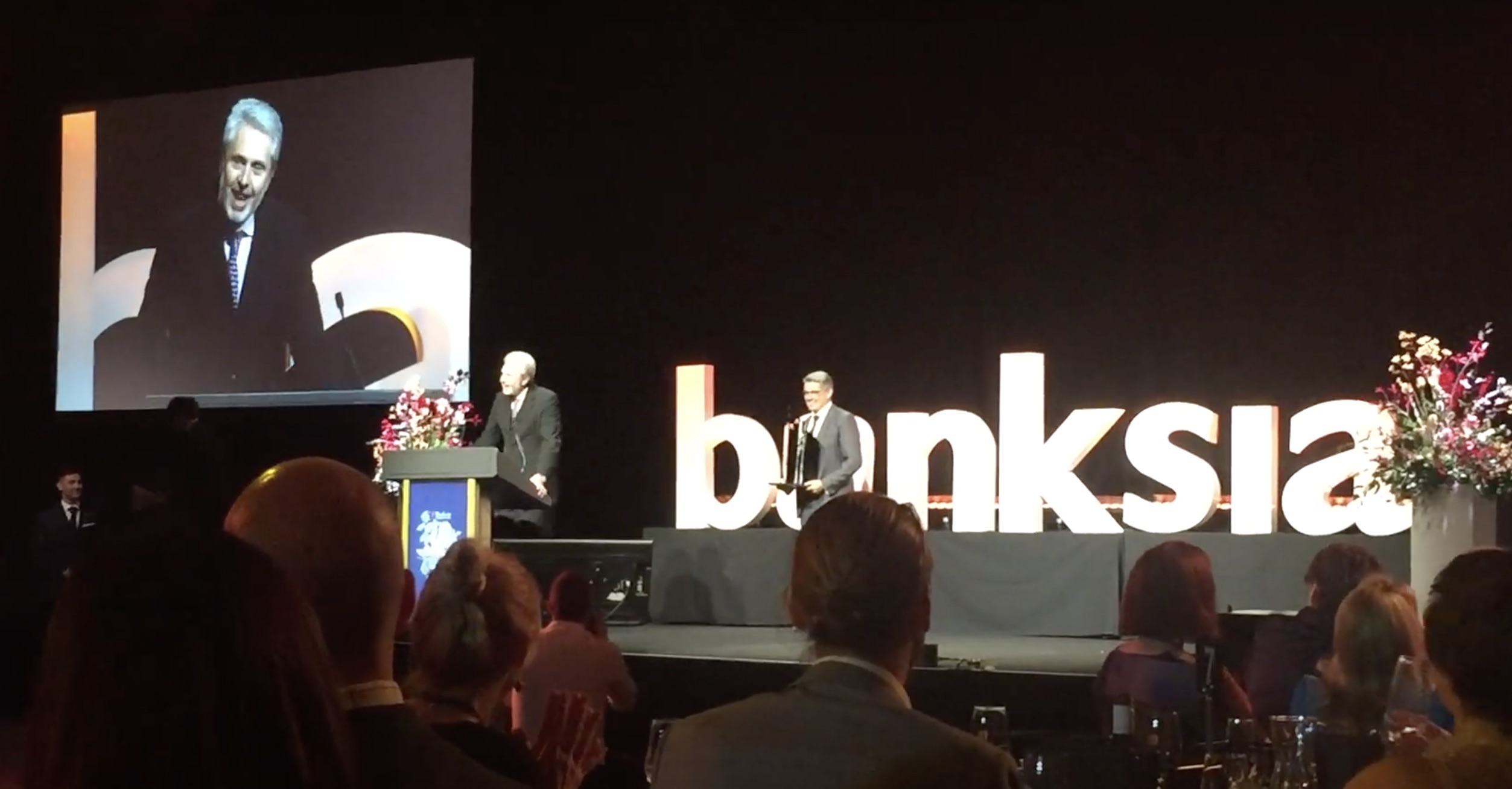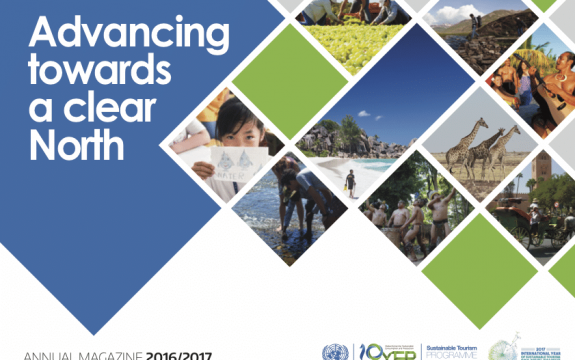And the winners are…. our guests for adapting their behaviour!

Thursday night in Melbourne saw My Green Butler win the prestigious Banksia Foundation Award for Small Business. This was a significant moment in the start-up’s progress for two reasons. Firstly, because the Banksia Award is widely regarded as the leading global environmental sustainability award having run for 30 years; and secondly it signifies the judge’s recognition that resource conservation is a credible alternative to save resources. My Green Butler is a sustainability management programme which helps hospitality firms reduce consumption and cut carbon emissions by engaging guests and staff to conserve resources. This means choosing to use less, not wasting, and avoiding consumption, or in other words adapting behaviours to achieve more sustainable outcomes.
Most hospitality strategies focus on energy/ water efficiency and renewables to help achieve ambitious carbon reduction targets. These alone are proving insufficient as demonstrated by the UNEP’s report (1) last week, which flagged current approaches to cut carbon emissions as not working, and we must increase climate actions fivefold to achieve the Paris Agreements goal of a 1.5°C increase.
Hospitality firms should consider whether installing more efficient equipment will necessarily achieve carbon savings. Does the performance of new technologies actually deliver the desired performance or are there some performance sacrifices? What happens to the money saved from using less energy? If efficiency savings are spent on other activities with carbon consequences have we really progressed? More efficient technologies also don’t teach people the consequences of consumption and they may promote continued unsustainable behaviours or even escalate them.
Likewise, renewable energy has limitations, for example it may generate power at times when consumption is low, requiring energy storage systems on site which have their own carbon footprint. As demand for grid supply of green energy rises connected green power will also require far reaching and innovative planning which has not effectively been set up (2). Renewable energy infrastructure has a lifespan and doesn’t change behaviour. Furthermore, both new more efficient technologies and renewables are also major capital investments for hospitality firms.
Now compare the above two popular saving methods (efficiency/renewables) with conserving resources. With conserving there is very little cost involved because it primarily requires just human adaptive behaviour. For example My Green Butler shows guests and staff the consequences of consumption by interpreting carbon emissions, and setting saving targets, rather like a diet. This has saved between 20-38% of guests’ resource use (3). We have found the majority (80%) of hospitality guests are prepared to conserve and many tourist accommodation managers and engineers are willing to embrace the idea of conserving (e.g. City of Sydney Sustainable Destination Partnership).
The Banksia Award judges’ decision to recognise resource conservation, over and above efficiency and renewables, was because My Green Butler “is a unique product with potential to have a real impact reducing the footprint of accommodation and has strong potential to go global” (4).
At the award event we dedicated the award to the thousands of My Green Butler guests who have chosen to adapt their behaviours and help hospitality owners save through a transparent system that directs funds to further eco-innovations and conservation of nature – a practical alternative to the invisible claimed savings from efficiency. Currently, My Green Butler is being applied to hospitality businesses small and large in Australia, United Kingdom and France.
References
- UNEP (2018) Emissions Report Gap. Internet: https://www.unenvironment.org/interactive/emissions-gap-report/
- Csala, D. & Sgouridis, S. (2017) 100% renewable by 2050: the technology already exists to make it happen. The Conversation. Internet: https://theconversation.com/100-renewable-by-2050-the-technology-already-exists-to-make-it-happen-82925
- Warren, C. (2018) Encouraging pro-environmental behaviour change at tourist accommodation. PhD Thesis, February 2018. Griffith University, Gold Coast, Australia.
- Banksia Foundation (2018) Banksia Sustainability Awards. Internet: http://banksiafdn.com/



